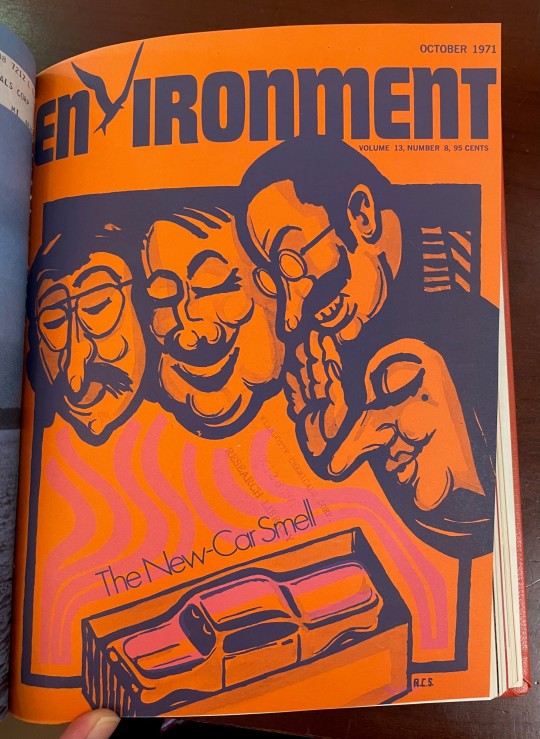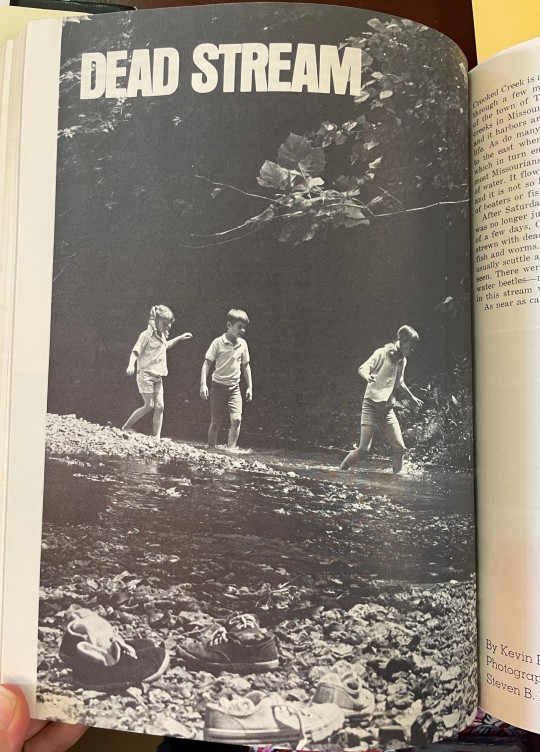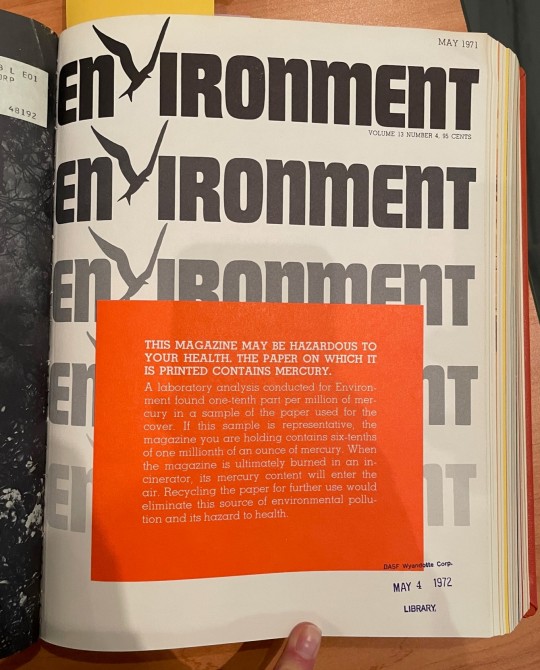#Toxic chemicals
Explore tagged Tumblr posts
Text
"Aspartame" Do NOT ingest this product, pay attention to what you're putting into your bodies. 🤔
#pay attention#educate yourselves#educate yourself#knowledge is power#reeducate yourself#reeducate yourselves#think about it#think for yourselves#think for yourself#do your homework#do some research#do your own research#do your research#ask yourself questions#question everything#aspartame#toxic chemicals#for your health#health tips#healthy living#save yourself#save yourselves#poison#news#you decide
464 notes
·
View notes
Text
Do people know most paper receipts are harmful to their health?
I'm going to get up on my soapbox for a minute, but do people realize how pretty much everyone is being overloaded with endocrine disruptors like BPA/BPS on a near-daily basis??
I don't think many people understand that ever since most of the world transitioned to thermal paper receipts (cheaper than ink), almost every receipt you handle from the gas station to the grocery store to the Square terminal printer at the local co-op is coated with Bisphenol-A (BPA) or its chemical cousin Bisphenol-S (BPS).
These chemicals have not only been proven to cause reproductive harm to human and animals, they've also been linked to obesity and attention disorders.
Not sure if your receipt is a thermal receipt? If you scratch it with a coin and it turns dark, it's thermal.
BPA/BPS can enter the skin to a depth such that it is no longer removable by washing hands. When taking hold of a receipt consisting of thermal printing paper for five seconds, roughly 1 μg BPA is transferred to the forefinger and the middle finger. If the skin is dry or greasy, it is about ten times more.
Think of how many receipts you handle every day. It's even worse for cashiers and tellers, who may handle hundreds in a single shift. It is also a class issue, since many people who work retail and food service are lower-income and will suffer worse health consequences over time from the near-constant exposure.
Not only that, receipts printed with thermal ink are NOT recyclable, as they pollute the rest of the paper products with the chemicals.
People don't know this and recycle them anyway, so when you buy that "green" toilet paper that says "100% recycled"? Yup, you are probably wiping your most sensitive areas with those same chemicals (for this reason, I buy bamboo or sugarcane toilet paper as a sustainable alternative to recycled paper).
This page from the Minnesota Pollution Control Agency has some good links if you want to learn more.
As consumers, we need to demand better from our businesses and from our governments. We need regulation of these chemicals yesterday.
If you are a buyer or decision-maker for a business, the link above also contains a shortlist of receipt paper manufacturers that are phenol-free.
If you work at a register, ask customers if they want a receipt. If they don't and you can end the transaction without printing one, don't print one!
As a consumer, fold receipts with the ink on the inside, since that's where the coating is. Some more good tips here.
And whatever you do, DO NOT RECYCLE THERMAL RECEIPTS
#i realized the other day that lots of ppl i talked to had no idea this was even a thing#important psa#demand more from your retailers and governments#environment#bisphenols#bpa free#bpa/bps#retail#food service#shopping#working class#capitalism#endocrine disruptors#endocrine disorders#adhd#eco lifestyle#environmental pollution#pollution#toxic chemicals#reproductive health#science#health#environmentalism#eco conscious#human health#consumer goods#consumer awareness#green living#green business#ecofriendly
463 notes
·
View notes
Video
tumblr
Ohio train derailment and corporate media
#tiktok#train derailment#toxic chemicals#toxic waste#toxic#new york times#ohio#chinese spy balloon#spy balloon#propaganda#censorship#us censorship#corporate media#Manufacturing Consent#Social media#media#cable news#local news#science news#news#Noam Chomsky#advertising#capitalist class#capitalism is a scam#newspapers#railroad workers#rail companies#railroad regulation#railroads#railroad
658 notes
·
View notes
Text
#salmon#animal death#animal welfare#sea life#mni wiconi#usa#indigenous#west coast#cars#tires#toxic chemicals
128 notes
·
View notes
Link
The railroad corporations blocked safety laws, the union fought for safer conditions, the federal government intervened against the union. This is the results.
694 notes
·
View notes
Text
Something’s Poisoning America’s Land. Farmers Fear ‘Forever’ Chemicals. (New York Times)
Excerpt from this New York Times story:
For decades, farmers across America have been encouraged by the federal government to spread municipal sewage on millions of acres of farmland as fertilizer. It was rich in nutrients, and it helped keep the sludge out of landfills.
But a growing body of research shows that this black sludge, made from the sewage that flows from homes and factories, can contain heavy concentrations of chemicals thought to increase the risk of certain types of cancer and to cause birth defects and developmental delays in children.
Known as “forever chemicals” because of their longevity, these toxic contaminants are now being detected, sometimes at high levels, on farmland across the country, including in Texas, Maine, Michigan, New York and Tennessee. In some cases the chemicals are suspected of sickening or killing livestock and are turning up in produce. Farmers are beginning to fear for their own health.
The national scale of farmland contamination by these chemicals — which are used in everything from microwave popcorn bags and firefighting gear to nonstick pans and stain-resistant carpets — is only now starting to become apparent. There are now lawsuits against providers of the fertilizer, as well as against the Environmental Protection Agency, alleging that the agency failed to regulate the chemicals, known as PFAS.
In Michigan, among the first states to investigate the chemicals in sludge fertilizer, officials shut down one farm where tests found particularly high concentrations in the soil and in cattle that grazed on the land. This year, the state prohibited the property from ever again being used for agriculture. Michigan hasn’t conducted widespread testing at other farms, partly out of concern for the economic effects on its agriculture industry.
In 2022, Maine banned the use of sewage sludge on agricultural fields. It was the first state to do so and is the only state to systematically test farms for the chemicals. Investigators have found contamination on at least 68 of the more than 100 farms checked so far, with some 1,000 sites still to be tested.
In Texas, several ranchers blamed the chemicals for the deaths of cattle, horses and catfish on their properties after sewage sludge was used as fertilizer on neighboring farmland. Levels of one PFAS chemical in surface water exceeded 1,300 parts per trillion, they say in a lawsuit filed this year against Synagro, the company that supplied the fertilizer. While not directly comparable, the E.P.A.’s drinking-water standard for two PFAS chemicals is 4 parts per trillion.
21 notes
·
View notes
Text
Lauren Magliozzi: Urban wildfires disrupt streams and their tiny inhabitants − losing these insects is a warning of bigger water problems
A tiny, vibrant world thrives along the rocky bottom of most streams. As sunlight filters through the water, mayfly nymphs, no larger than your fingernail, cling to algae-coated cobbles. Their brushlike mouthparts scrape the greenish coating, leaving faint trails as they feed. Six spindly legs anchor them against the current, while feathery gills wave gently, drawing oxygen from the flowing…
#Amphipod#Crayfish#insects#Lauren Magliozzi#Mayfly#streams#toxic chemicals#Urban Wildfires#water conservation#water fauna#water pollution#wildfires
12 notes
·
View notes
Text
#tiktok#tw food mention#pfas pollution#pfas#pfas chemicals#thelawyerangela#toxic chemicals#capitalism kills#capitalism#food recall#psa
7 notes
·
View notes
Text
5 notes
·
View notes
Text
Nitrogen dioxide, #one of very #many harmful #pollutants #emitted by #gas #stoves, kills 40 000 #Europeans and 19 000 #Americans each #year.
#gas#gas stoves#pollution#toxic chemicals#chemicals#europe#eu#uk#united kingdom#britian#america#american#european#european union#united states#United States of america#us#usa
3 notes
·
View notes
Text

#pay attention#educate yourselves#educate yourself#knowledge is power#reeducate yourselves#reeducate yourself#think about it#think for yourselves#think for yourself#do your homework#do your own research#do some research#do your research#ask yourself questions#question everything#fruits and vegetables#government corruption#labels#understand#toxic chemicals#crimes against humanity
231 notes
·
View notes
Text







Environmental Activism in Print
In the mid-1950’s a group of scientists, doctors, community members, and women activists based in St. Louis, Missouri became increasingly concerned about the health effects of atomic testing and fallout so they created a group called the Committee for Nuclear Information. They realized that the public did not have full and accurate information about the risks and decided that the creation of a magazine was their best chance of making a difference to inform the public. The magazine started in 1958 with the title Nuclear Information. After the Atmospheric Test Ban Treaty was signed in 1963 the group decided to shift their focus to more general environmental issues and changed title of the magazine to Scientist and Citizen and the name of their group to Scientists' Institute for Public Information. The magazine changed names again to Environment in 1969 to 1997. This magazine is extraordinary for its time because its purpose was to use the scientists as conduits of information to the public supposedly without political bias.
We have issues from 1969 to 1997. Environment
There's a great chapter on the creation of this activist committee in the book Disrupting Science by Kelly Moore.
#enviroment#environmental movement#environmental activism#science activism#activism#journals#DDT#new car smell#pollution#recylcing#toxic chemicals#air pollution#water pollution#othmeralia
17 notes
·
View notes
Text
Seeing as how my post is getting low engagement, I'm curious:
Bonus: reblog with your answer and if you like, your home country.
#i realized the other day that lots of ppl i talked to had no idea this was even a thing#demand more from your retailers and governments#important psa#reblog for a bigger sample size#environment#bisphenols#bpa free#bpa/bps#retail#food service#shopping#working class#capitalism#endocrine disruptors#endocrine disorders#adhd#eco lifestyle#environmental pollution#pollution#toxic chemicals#reproductive health#science#environmental activism#environmental justice#health#environmentalism#eco conscious#human health#consumer goods#consumer awareness
16 notes
·
View notes
Text
I am going outside right now. I am going to spray the fresh young poison ivy in my yard with terrible chemicals. No judgement please. The poison ivy must die. It's keeping me from using my yard.
4 notes
·
View notes
Text







Source: EnGadget
youtube
VERO: Vacuum-cleaner-Equipped Quadruped RObot for Efficient Litter Removal
18 July 2024
IIT' Dynamic Legged Systems lab developed VERO (Vacuum-cleaner Equipped RObot) that can assist people to clean beaches, small alleys and parks, particularly for removing cigarette butts, in terrains that are hard to reach for wheeled and tracked robots.
The onboard vacuum cleaner is connected with hoses to the four legs.
Vacuum cleaner nozzles are attached to each foot, allowing the robot to collect the cigarettes efficiently while walking, by simply stepping close to the detected object and activating the vacuum.
#VERO#Italian Institute of Technology#vacuum equipped quadruped robot#A.I#Youtube#Dynamic Legged Systems Lab#onboard vacuum cleaner#cigarette butts#litter removal#trash#beaches#field robotics#robotics#toxic chemicals#microplastics
2 notes
·
View notes
Text
Excerpt from this Chicago Tribune story:
Evidence is mounting that food packaging and plastic tableware contain toxic chemicals absorbed by humans, a public health risk largely ignored by federal officials charged with protecting the nation’s food supply.
During the past week alone, a new study detailed how more than 3,600 chemicals in food-related materials have been detected in people worldwide.
A companion review of recently published research confirmed 189 chemicals linked to breast cancer have been found in the materials, 76 of which migrate out of packaging and utensils during normal use.
Many of these chemicals were approved decades ago by the Food and Drug Administration with little, if any, oversight.
“Some have never been reviewed by the FDA at all because food and chemical companies are exploiting a loophole that lets them, rather than the FDA, decide whether a chemical is safe,” said Melanie Benesh, vice president for government affairs at the Environmental Working Group, one of several nonprofit organizations that have repeatedly petitioned the agency to ban toxic substances in food and packaging.
Years of legal and political pressure are just now forcing changes in an arm of the government long dominated by industry priorities rather than public health concerns.
After decades of denial, the FDA is vowing to overhaul its review processes and conduct more rigorous reviews of food chemicals already on the market.
Details remain slim. Agency officials cautioned Wednesday their budget to assess chemicals doesn’t come close to the amount necessary to conduct a robust safety program.
Absent further direction from Congress, though, it likely will take years to determine the fate of chemicals that researchers — and in some cases the FDA itself — already have flagged because they are suspected of posing significant health hazards.
One example is bisphenol A, or BPA, a hormone-scrambling chemical used in food can linings, food containers and water bottles. BPA has been linked to birth defects and behavior disorders in infants and children. In adults, the chemical can trigger diabetes, heart disease, erectile dysfunction, cancer and early death.
Other than banning BPA in baby bottles and infant formula cans, FDA officials have said the chemical is safe for approved uses. But in 2021, the European Union determined BPA is harmful at levels far below what once was considered safe. A year later nonprofit groups petitioned the U.S. food safety agency to take action; the FDA has yet to respond.
12 notes
·
View notes